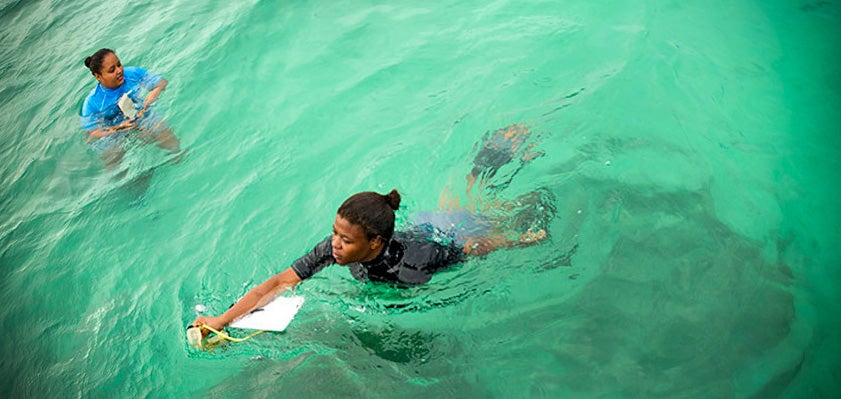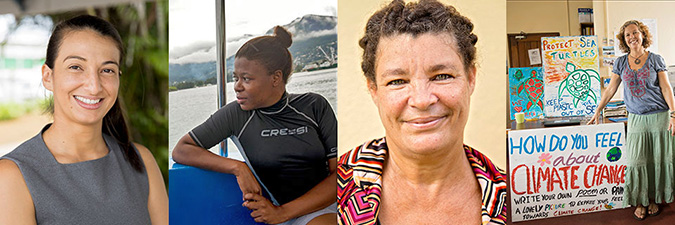Empowering women to conserve our oceans

The issue
In early June, the United Nations is putting a spotlight on oceans. The first-ever Ocean Conference will be held at the United Nations Headquarters in New York, from 5 – 9 June, and “Our Oceans, Our Future” is the theme of this year’s World Oceans Day on 8 June. The high-level conference will convene global leaders, businesses and activists to discuss and support the implementation of Sustainable Development Goal 14—which urges action to conserve and sustainably use the world’s oceans, seas and marine resources.
Healthy oceans are key to conserving the health and wellbeing of our planet, and important sources of livelihoods for billions around the world, including women. Although women make up about half the workforce in processing, cleaning and trading fish, in 2014, they accounted for only 19 per cent of all people directly engaged in catching or harvesting of wild fish and in fish farming. Typically, women in the fishery sector are largely concentrated in low-skilled, low-paid, seasonal jobs without health, safety and labour rights protections. Women also earn approximately 64 per cent of men’s wages for the same work in aquaculture, and face the risks of ocean degradation with less resources on hand to build resilience.
In many parts of the world, women’s contribution, both towards ocean-based livelihoods and conservation efforts, are invisible.
In the lead-up to the Oceans Conference, UN Women visited the island state of Seychelles, to document how women are leading marine conservation and sustainable use of the ocean.
Our work
Women, oceans and conservation
In photos: Women of Seychelles lead efforts towards healthy oceans
The declining health of our oceans threatens the lives, livelihood and food security of billions of people. For island communities and those living around oceans and seas, the risks are even greater. Recently, UN Women visited the island of Seychelles, in the Pacific Ocean Rim region, where ocean-based tourism is the backbone of the economy and men and women rely on the ocean for sustainable living. This photo essay gives a glimpse into women’s efforts leading marine conservation in Seychelles. Read more
From where I stand: “I became the first fisherwoman in my community”
Yayi Bayam Diouf, 68, runs a training centre for fisherwomen in the village of Thiaroue-sur-Mer, near Dakar, Senegal. Since participating in a series of entrepreneurship and leadership trainings provided by UN Women, Diouf broke through a glass ceiling and became the first woman fisherwoman in her village. And then she went on to help other women secure livelihood through sustainable fishing and fish farming.

